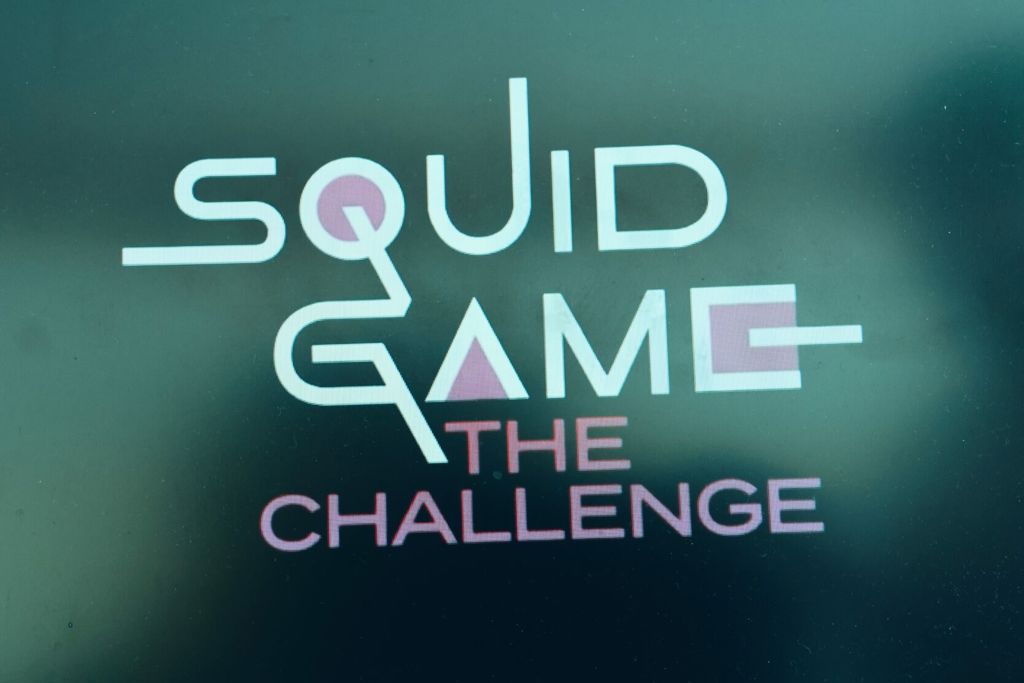Netflix’s Squid Game: The Challenge has a fun concept at first glance, but it ultimately misses the entire point of the original series.
When Squid Game released on Netflix in 2021, it quickly became a global sensation. The South Korean action-drama was released to critical acclaim and drew eyes from across the world thanks to its highly interesting concept.
In the show, citizens affected by poverty and debt are invited to participate in a series of children’s games with the hopes of winning a massive cash prize. What the 456 contestants do not realize is that each eliminated player throughout the six games is killed, meaning the winner of the cash prize will be the sole survivor.
Contestants are put through grueling physical and psychological challenges that test not only their will to win the money, but to survive. The games are played for the entertainment of rich VIPs who place bets on contestants. The storyline got the international world invested in the series, leading Squid Game to become Netflix’s most-streamed show within 28 days of release.
However, the series is more than an interesting drama about surviving children’s games. The show is supposed to be a critique of capitalism and a commentary on the power imbalance between the poor and rich within society. This is perhaps best evidenced through the lavishly wealthy VIPs laughing and placing bets as they watch contestants kill one another in order to survive. With his power and status, the game’s creator invented the competition as a source of entertainment, exploiting the poor by dangling money over their heads like a carrot and stick.
The show makes a powerful message that leads viewers to question the society they live in and whether they societally align with the players or the VIPs. Watching the show with a surface-level perspective can provide a highly entertaining drama, but deeper reflection reveals the show’s true messaging.
The show’s creator, Hwang Dong-hyuk, got the idea for Squid Game through his personal economic struggles as well as the financial inequality in South Korea and capitalism as a whole. Finding these messages in Squid Game isn’t a matter of reading into it too deeply, it’s critical thinking about the exaggerated reflection of our world that the show creates.
This makes it even more painful that Netflix has not only ignored the messaging behind its own program but is making efforts to turn Squid Game into a giant franchise through the same capitalist mentality that the show warns us about.
It’s worth noting that Squid Game wasn’t written to become a long-running saga. Hwang wrote the original series in 2009, but he couldn’t find a production company to work with on the project until 2019. He never had a clear idea of where the series might go if it continued, but with its breakout success, Netflix is ready to turn it into a monopoly.
“The Squid Game universe has just begun,” said Netflix chief content officer Ted Sarandos during an earnings interview. It’s interesting how Hwang’s nine-episode series, originally conceived as a one-off, has now been propelled into its own “universe.”
And he wasn’t kidding. Squid Game now has its own line of official merch, ready to line the pockets of the Netflix team who are working on making the franchise even larger.
Naturally, Squid Game has been renewed for a second season, currently planned for release in 2024. Only a few months after the show’s release, Hwang was already talking about the potential for a third season.
Perhaps the most damning example of Netflix’s corporate greed can be seen in their upcoming release of Squid Game: The Challenge, a real-life game show adaptation of the children’s games played within the series.
In the series, 456 players will compete for $4.56 million, the largest cash prize in the history of reality television. Players will be forced to make use of strategies, alliances and betrayals to win the game, a psychological battle not far from that within the original series. The key difference, of course, is that eliminated players are not going to be killed; they’ll simply walk away without the life-changing prize.
The problem couldn’t be more clear. The original series depicted those in unfortunate circumstances going to war with each other for the benefit of the rich. Netflix’s response to the series’ success is to pit real people against each other in a similar fashion, forcing them to engage in mental and physical warfare over a jaw-dropping pool of cash. Note that this is to grow the franchise’s popularity, further lining the pockets of the Netflix executives calling the shots.
If Netflix was hoping to create a game show that parallels the original series, they’ve done so successfully – in all the wrong ways.
It’s saddening that the Netflix team seems to have forgotten the original messaging behind the show’s creation in favour of seeing mass money-making opportunities. However, it shouldn’t come as too much of a surprise – after all, it’s exactly what the show warned us about.
Squid Game: The Challenge will surely be an entertaining experience for those who enjoyed the surface-level plot of the original series, and it’s entirely understandable to want to revisit Squid Game by enjoying this new show. But for those who enjoyed the show for its deeper meaning, Netflix’s new spinoff is a betrayal to the series’ purpose.
It’s unfortunate that those who gave us the original series are now abusing its messaging by becoming its villains.


